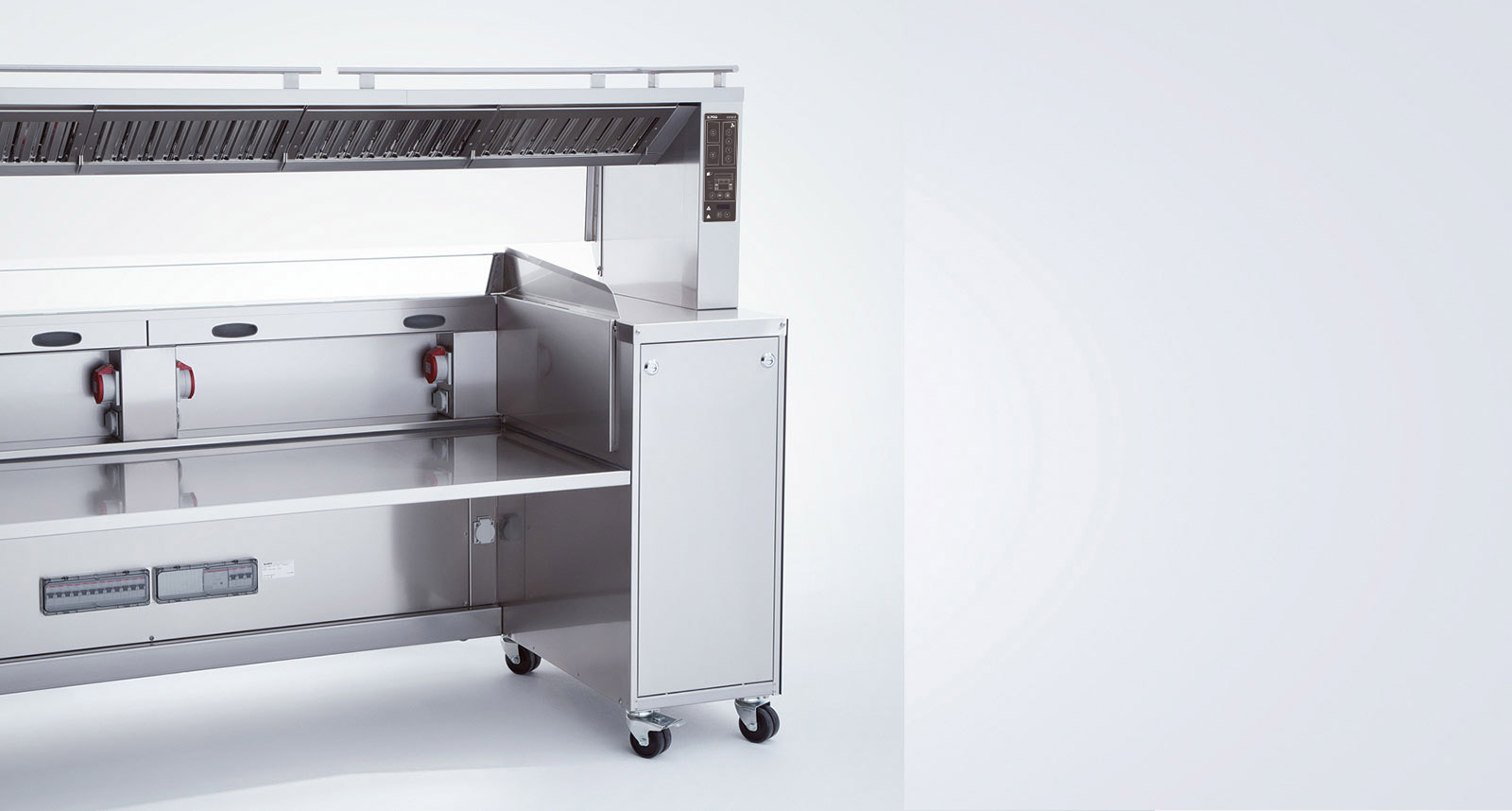Flexibilität – Umbau im Handumdrehen
Das Kochgeräte-Einstellboard kann man leicht herausnehmen, zum Beispiel um ein Standgerät unterzubringen.
Zusätzlich ist der Bereich unter der Einstellnische als Stauraum konzipiert, z.B. für die B.PROTHERM Speisentransportbehälter oder einen Unterbau-Kühltisch.

